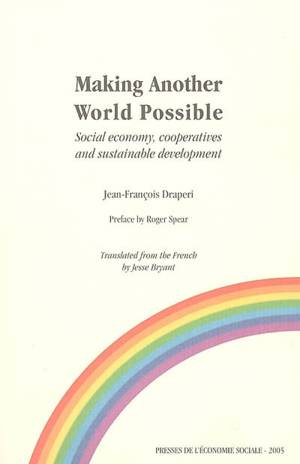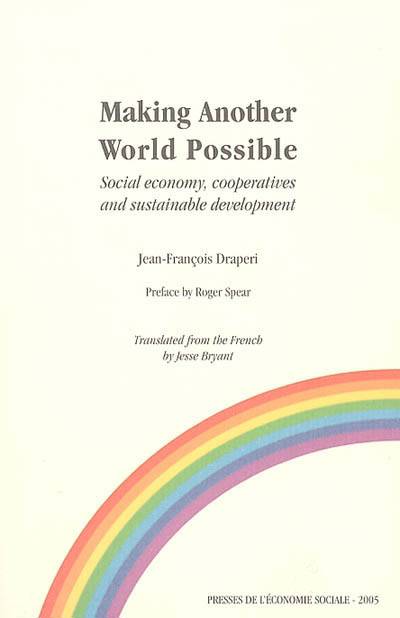
- Afhalen na 1 uur in een winkel met voorraad
- Gratis thuislevering in België vanaf € 30
- Ruim aanbod met 7 miljoen producten
- Afhalen na 1 uur in een winkel met voorraad
- Gratis thuislevering in België vanaf € 30
- Ruim aanbod met 7 miljoen producten
Making another world possible
social economy, cooperatives and sustainable development
Jean-François DraperiOmschrijving
Social economy, cooperatives and sustainable development
Lessons from French and international experiences
"Another world is possible," declare the anti-globalization protesters. But
which other world? And how will it be built? That is the question this little
book addresses. It was written for those who want to change their lives and
help change the world. As a response to this question, it proposes a hypothesis
for radical non-violent action based on the principles of voluntary
participation, equality and solidarity. It pleads in favor of an economy that
meets the needs and aspirations of people, an economy that is not an end
in itself but makes education its objective, an economy that enables the
human being to strengthen one's individual and collective identity and
become emancipated.
Is this economy utopian? If it is, it is a pratical utopia as shown by its rich
history in Europe, Africa, India and Latin America. The enterprises that
make up this sector - cooperatives, mutual societies and associations - are
groupings of people and not companies owned by stockholders. By adopting
democratic rules of functioning, limiting the power of capital, and establishing
cross-generational solidarity in the community, they define an
alternative relationship with work and are the best means for sustainable
local development.
Drawing on the history of the French cooperative movement, the work presents
both the remarkable practices of the social, alternative and solidarity
economy and analyses based on various disciplines in the social sciences.
Specificaties
Betrokkenen
- Auteur(s):
- Vertaler(s):
- Uitgeverij:
Inhoud
- Aantal bladzijden:
- 111
- Taal:
- Engels
Eigenschappen
- Productcode (EAN):
- 9782952385411
- Verschijningsdatum:
- 30/10/2005
- Uitvoering:
- Paperback
- Afmetingen:
- 110 mm x 170 mm

Alleen bij Standaard Boekhandel
Beoordelingen
We publiceren alleen reviews die voldoen aan de voorwaarden voor reviews. Bekijk onze voorwaarden voor reviews.









